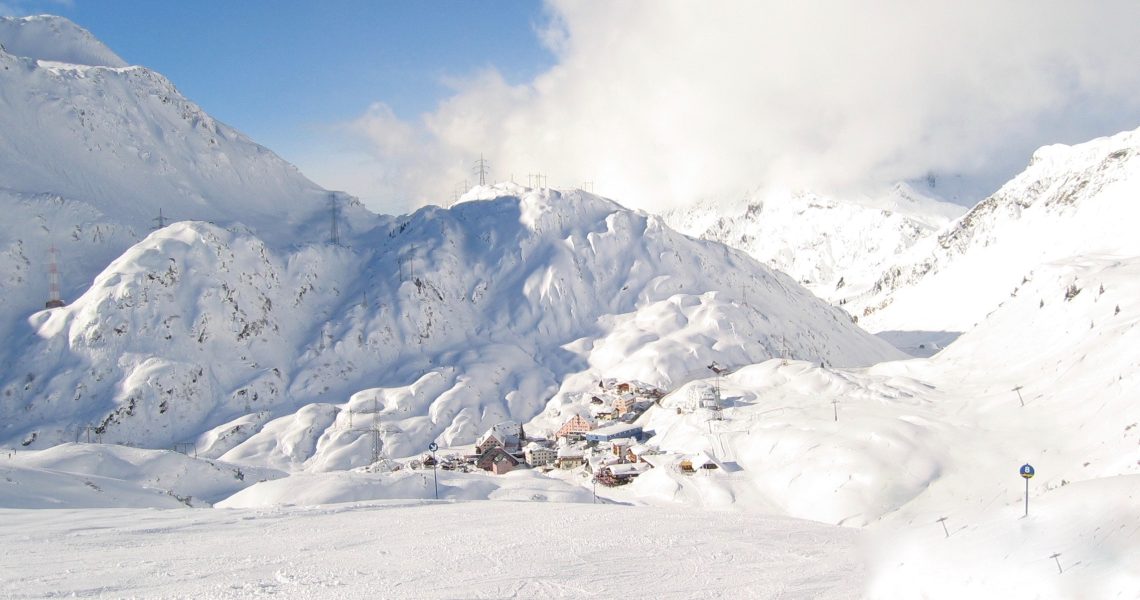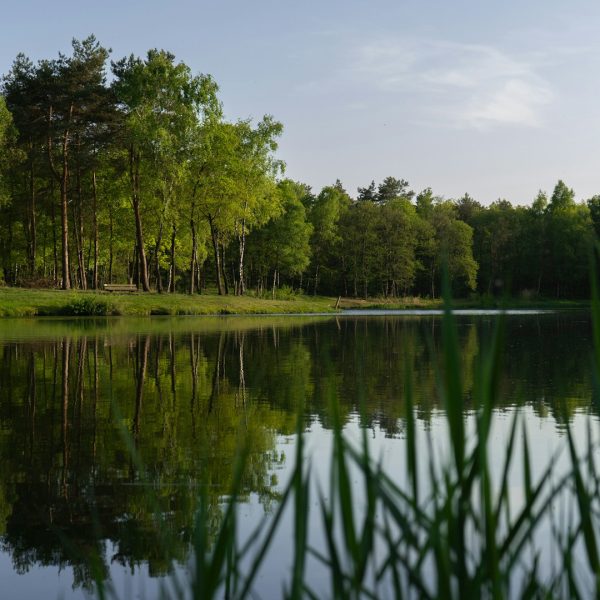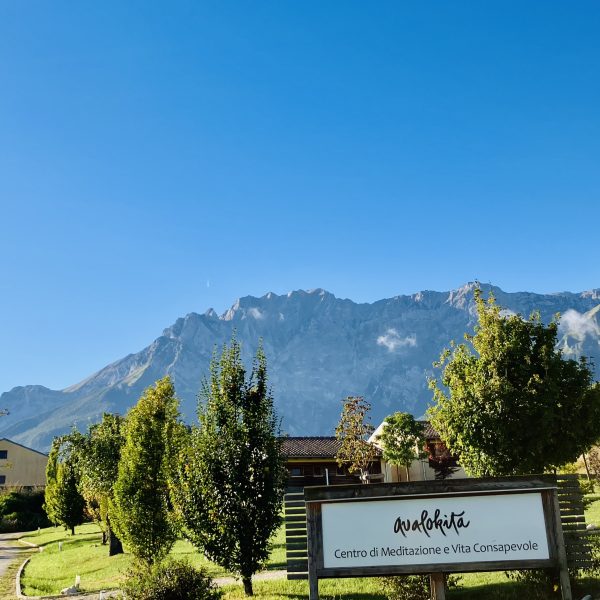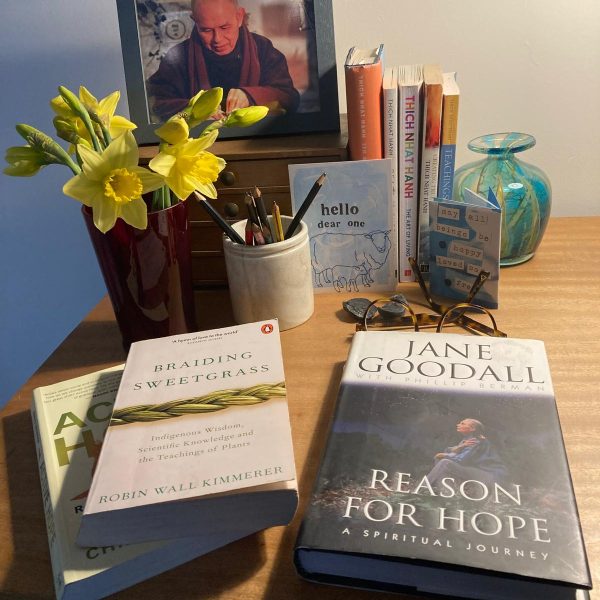Radical Mindfulness: Zen Teachings for Challenging Times

As a young teacher in Vietnam, Thich Nhat Hanh was convinced that a renewed Buddhism could transform society. His monastic students were keenly aware of this as they prepared to visit the UK for the London Mindfulness Hub. How does Plum Village mindfulness help us face challenges such as Brexit and Climate Crisis? In a talk in front of two hundred people at UCL, they address the question of how we can bring our practice to the deepest issues of the day.
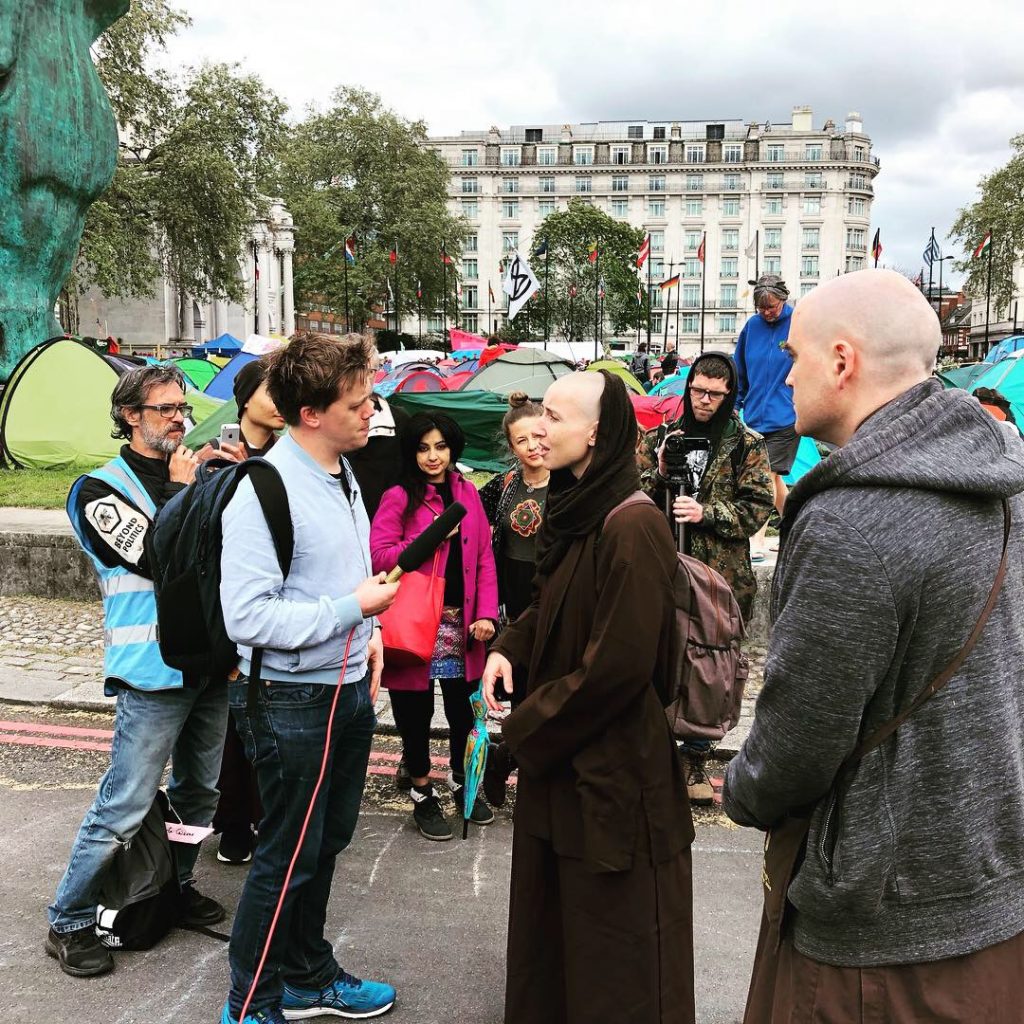
Mindfulness as a Radical Energy
We always speak of mindfulness as an energy and as an energy it is always radical, it is always an energy that will change something about the situation. For us mindfulness isn’t a tool we use to get something, it isn’t an escape where we do a bit of mindfulness in the morning and a bit of mindfulness in the evening then think that everything will be fine. Although some people may have the impression that mindfulness lives in the headspace app and the sitting position, for us mindfulness is a way of life.
It is much broader and always goes together with concentration and insight, so it is a triple training. Mindfulness naturally helps us be more concentrated and present and that naturally leads to insight. Insight about what is going on inside and connected to that, what is going on around us, what is the collective energy in our city, in our country and on our planet.
So mindfulness helps us to tell the truth which is a theme at the moment. It gives us an honesty about what is going on. And the practice can give us courage, courage to do the right thing. And when we are aware of ourselves and aware of the situation, mindfulness can help us cultivate compassion. Compassion arises naturally from understanding suffering. Whenever Thich Nhat Hanh when to the U.S. Congress or the UK Parliament, he always spoke about clarity, compassion and courage which are the fruits of mindfulness practice.
Plum Village practice: born out of action
Thich Nhat Hanh was faced with the question of how we can engage with trying to change a situation without burning out during the Vietnam War, in particular during his time of calling for peace in the West in the late 1960s and early 1970s. It was in this “sea of fire” that Engaged Buddhism developed. Thay had a community of social workers that he was guiding who were going out to rebuild villages, to start schools, to be a positive force for change during the war. But when he found himself exiled because he had called for an end to the war, he wanted to be able to support his students back in Vietnam. That was the origin of the book “The Miracle of Mindfulness” which was a series of letters back to the social workers in Vietnam who were staying in bombed villages in this terrible situation of violence and destruction. Thay was giving them practical methods to not burn out in that situation.
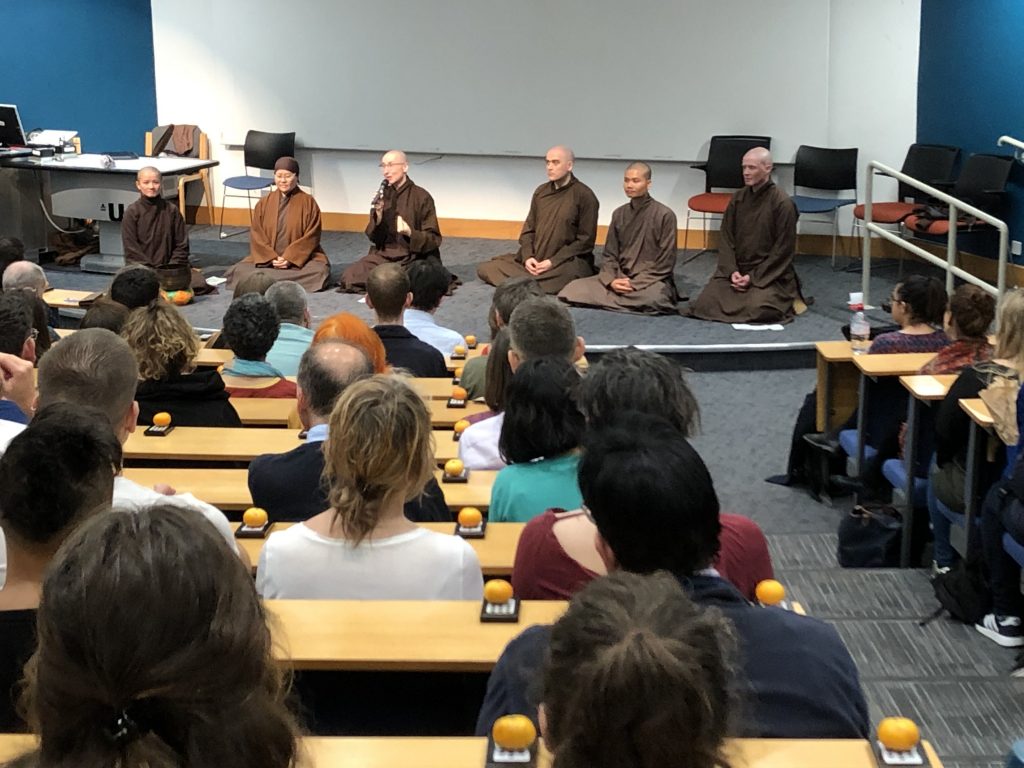
That is what has evolved into what we call Plum Village Mindfulness Practice. Which is a kind of meditation we practice throughout the day and in every position including when we are in action, when we are doing something and when we are engaging with other people. Our kind of mindfulness brings a spiritual dimension to everything we do in the day. We don’t just wash dishes to have clean dishes, we wash dishes as a profound encounter with life, with the present moment, with our body, with gratitude of having food to eat. Washing dishes then becomes a sacred act, we are not losing time when we wash dishes.
I was surprised when I first saw Thay and Sister Chang Kong editing documents on a computer as I thought that was “office work”. I didn’t realise that computer work could be such a realm of mindfulness. So mindfulness can penetrate everything it takes for action to happen. So there is nothing outside our mindfulness energy.
The power to make compassionate choices
Thich Nhat Hanh said, “We have more than enough technology to solve the climate crisis and as individuals, we are also free to take all sorts of decisions to reduce our impact”. For example, we are free to choose from the moment we leave this hall a low meat diet. It is simple and it can even be pleasurable and enjoyable to do so. And in a recent report it says that a low meat diet is one of the key changes we need to make. This is something we can do right way. Thay said when we make these kinds of changes we can do so with a lot of joy and freedom, we don’t need to be a veganist, an angry vegan, but it can give us a lot of happiness to know that there is no violence on our plate and that we are eating with compassion. That the choice we are making with each meal is protecting and nurturing life, not just for our generation, but for future generations.
I was happy to hear that the land saved from not having livestock can be rewilded and planted with trees and that is part of the long term plan. It is wonderful to know that our simple choices can have long term benefits.
Falling in love with the earth
In 2012-2013 Thay had a series of insights about how important it is to fall in love with the earth. He gave a whole series of talks and wrote texts, some of which are published in the book Love Letter to the Earth. His insight was that if we can love the Earth enough, then we can have all the energy we need to protect the earth. I remember a talk in France when we asked everyone directly. “Have you fallen in love with the earth?” That was really a deep question, and for each one of us, it would have to be in our own way.

Have you fallen in love with the earth?
Thich Nhat Hanh
He gave the example of how he was falling in Love with the earth. When he was opening the tap to wash his face, he didn’t want to open the tap too wide as the drops of water were so precious. He took the drops of water to refresh his eyes in the morning and he felt he was taking the snow from the Himalayas to moisten his eyes. As he stepped out it was a frosty morning in Upper Hamlet and he felt the frost was also from Himalayan mountain peaks. This is about allowing ourselves to see the magic and mystery in the world and in nature to really cherish its preciousness. Our Teachers said when we are able to do this we have an infinite source of energy. Love is a huge source of energy, we will do anything to protect what we love and it gives us joy to protect what we love.
A collective awakening
Something I have heard a few times over the last few years is that people are not ready to make a change in their habits or their way of living. There is a sense that people are attached to their creature comforts. Our teacher emphasises that when we see the truth, when we hear the truth, when we know the nature of the situation and the danger that our planet, our species and other species are in, we have a lot of energy to change our habits. There is a need for that collective awakening that each one of us is a part of. I am very eager to see how the Extinction Rebellion movement continues to grow, this will demonstrate exactly how much energy of awakening and readiness to change our way of living is out there.
Our idea of happiness is crucial
People say “are we ready to make sacrifices?” Are we ready to have a colder house? To eat less meat? To take more train journeys? To walk more. In our tradition, we say this has something to do with what life is all about, what true happiness is and what matters most. If our main criteria is to be more efficient and effective, if we say that time is money and I need to maximise everything, then maybe we don’t have time to talk, we don’t have time to take the train, we don’t have that spirit of generosity towards the planet.
But with energy of mindfulness when we stop and take a minute, when we really ask, ‘what is life all about? What does a day well lived look like?’ And for us, we would say true happiness is not exactly what the majority of society is telling us. We may already know that true happiness is not about how much money we have or how much power or influence we have. And yet we still might have the sense of striving and pushing, we might be filling our lives to get somewhere, a promotion, a pay rise, a betting living situation. We have all these things that we can say I’ll be happy when. When I’ve got these things, I can relax a little bit, then I can do a four day week. We put our happiness in these boxes but that may not be what true happiness is.
True happiness may be a day lived simply, in connection with ourselves, taking care of our body and mind as we go about our daily business, in connection with our loved ones, being with good friends, laughing and in connection to the earth.
Thich Nhat Hanh asked us to re-examine our idea of happiness. Are you sure that what you think will make you happy will really make you happy? But if we come back to take care of ourselves, our loved ones and the earth, we’ll really be able to arrive into our life and live our days deeply.

So once we’ve got a right view of happiness, that leaves a lot of energy to invest in the things that are truly most important to us.
Sister True Dedication
So once we’ve got a right view of happiness, that leaves a lot of energy to invest in the things that are truly most important to us. And perhaps taking action and investing time and energy into taking care of the planet, protesting on a bridge or a crossroads is the best way we can use our time and we know that and we can be confident about that.
One of the things that has inspired me most about the Extinction Rebellion protests is the spirit of community, the spirit of non-violence, and the spirit of joy and creativity. I think the protesters look like they were having a lot of fun, even those getting arrested. That fits with our idea of sustainable engaged action, that we have joy in the doing of it. We are not struggling and striving, we are encountering life while we are taking action. We are encountering deep connection with our fellow human beings and with the earth. And what we are doing comes from a place of love and faith and hope.

You can listen to the whole talk here. (This extract spans from 3:15 to 27:15.)

